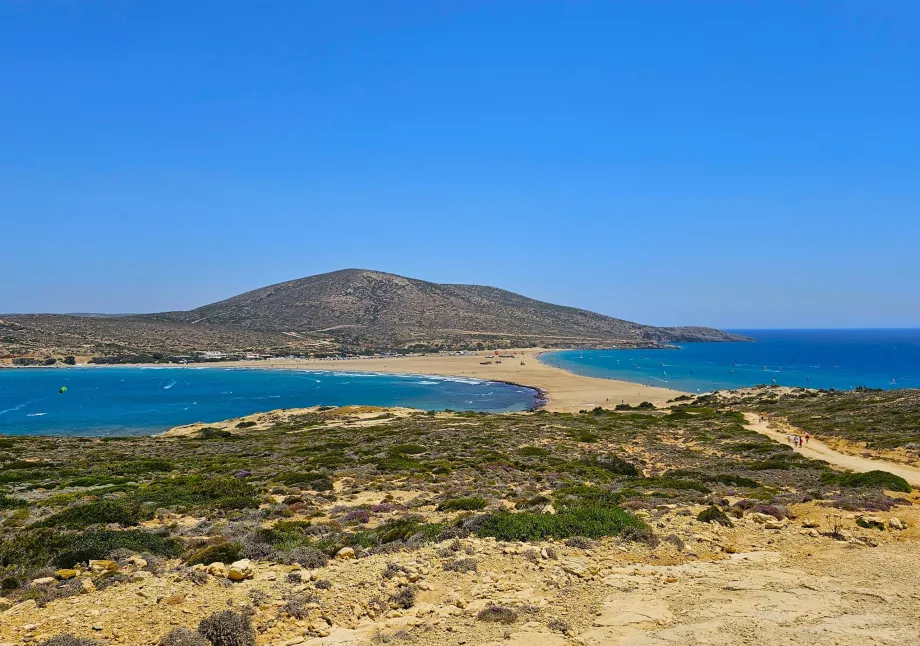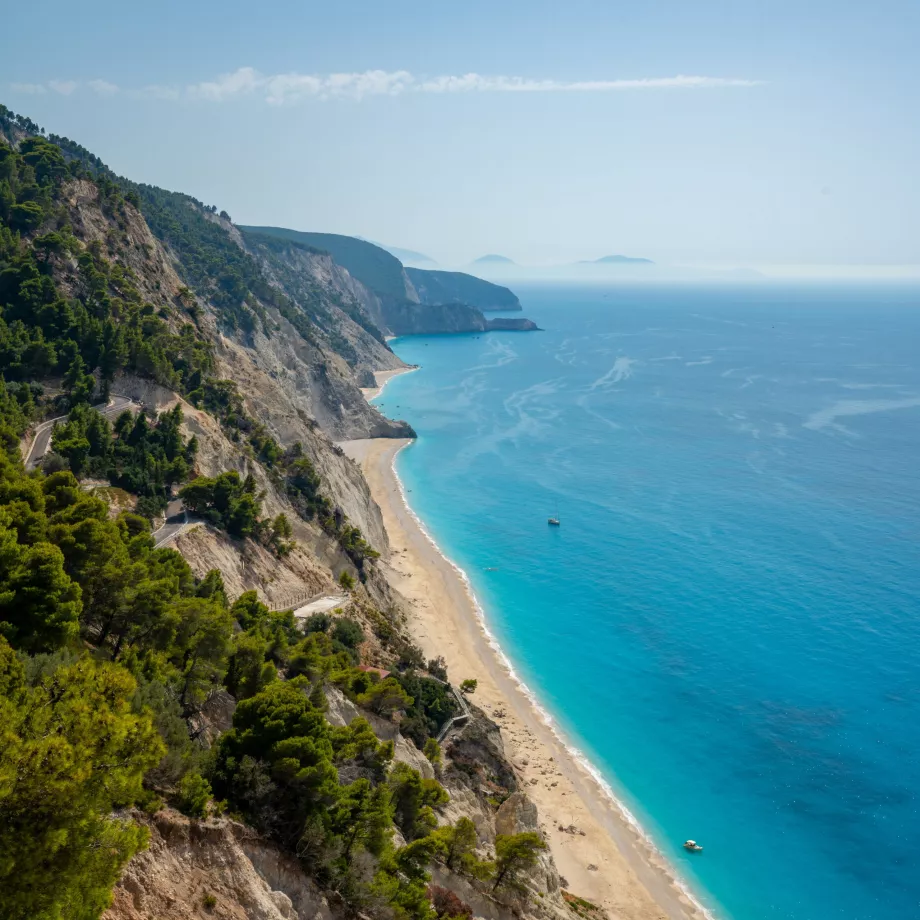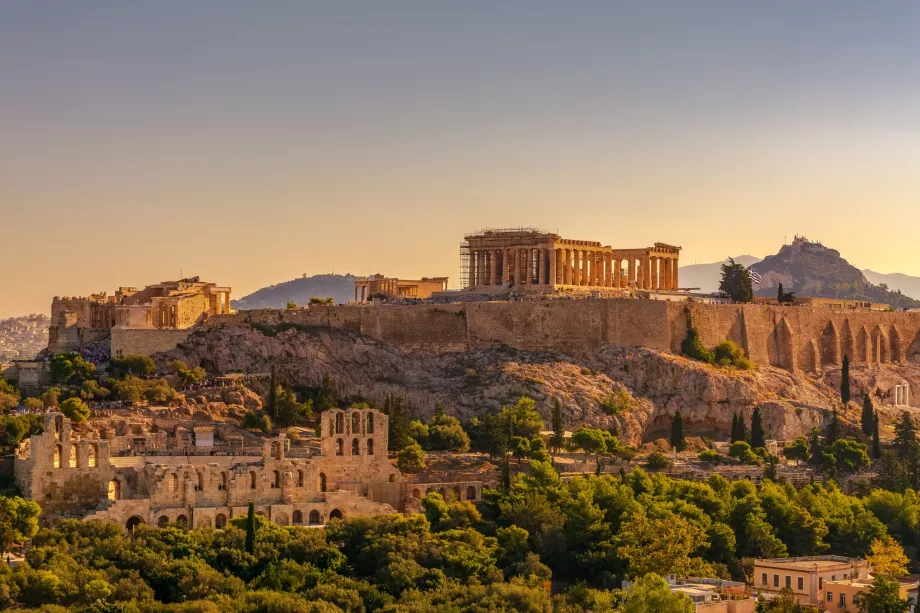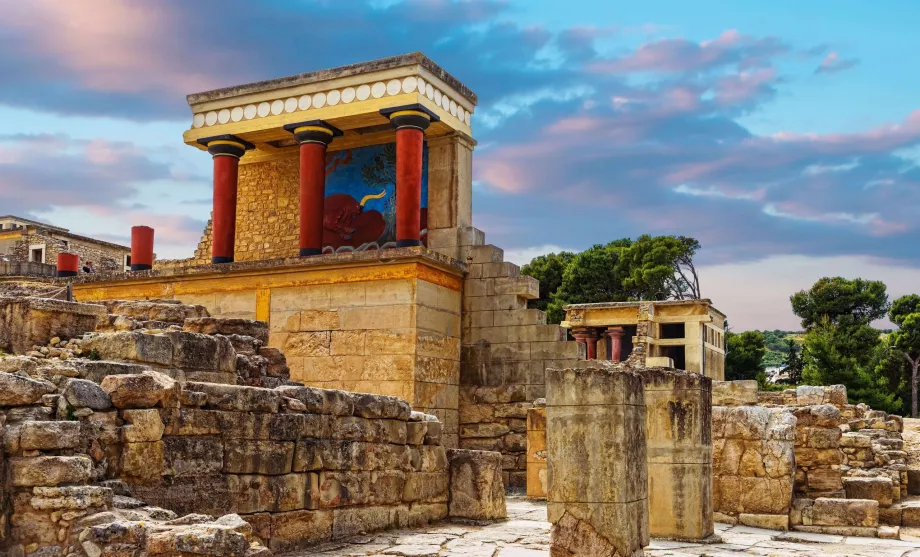What to do in Greece
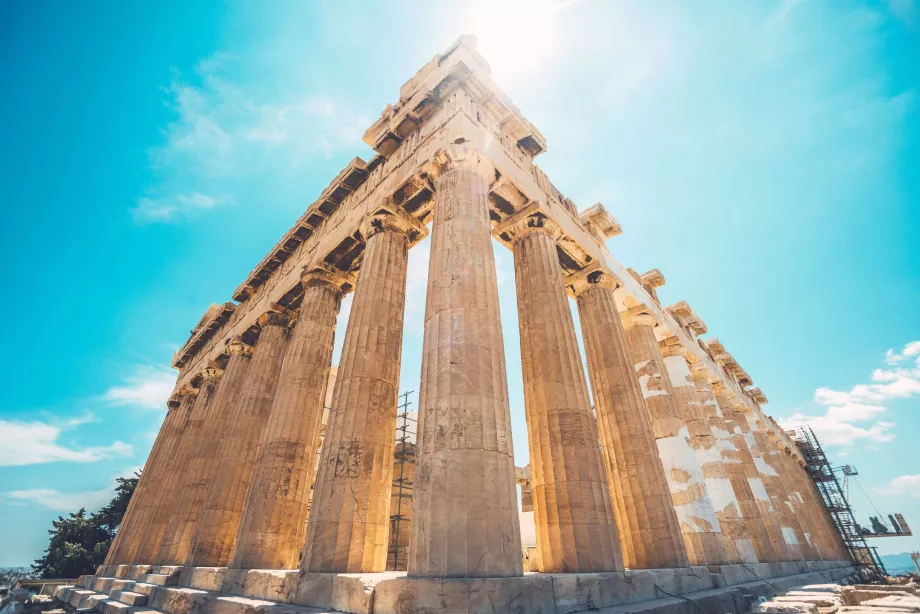
Why go to Greece? The country is incredibly diverse and each of the cities or islands offers a specific type of activities and entertainment.
In this chapter, you'll find out the best-known general activities that are definitely worth a trip to Greece for.
Check flight prices at skyscanner.com
Beaches and swimming
Greece is one of the most popular holiday destinations in Europe. With hundreds of islands and a very rugged coastline, Greece has one of the longest coastlines of any country in the world.
How are the beaches in Greece?
With the exception of a few resorts on Crete or Rhodes, Greek beaches are not usually surrounded by high-rise resort buildings, but rather smaller hotels or local developments.
Thanks to the rugged coastline, many beaches in Greece are natural and very photogenic.
Usually, even the smallest beaches have at least one small refreshment shop that rents sunbeds and umbrellas.
Beaches in towns and villages often offer a variety of water sports or boat trips.
What are the prices on Greek beaches?
Generally, prices in restaurants and shops on the beaches are around 10% to 15% higher than in the town centres inland.
Prices are usually highest on the islands of Mykonos, Santorini, Zakynthos, Corfu, Crete and Rhodes.
Prices for sunbeds and parasols vary widely. Prices are per day for a set of 2 sun loungers + parasol
- the most famous beaches - around 30 eur
- standard large resorts - around 20 eur
- small beaches on famous islands - around 12 eur
- the smallest beaches in low tourist areas - 8 to 10 eur
Are Greek beaches pebble or sandy?
The most beautiful beaches are usually pebble beaches, but on every island or even in every region of mainland Greece you will find pure sandy beaches.
We are gradually compiling up-to-date information on exactly where the fine sand beaches are without pebbles in our guides to each Greek region.
Here we present our personal experiences:
- Beaches in Rhodes
- Beaches in Corfu
- Beaches in Santorini
- Beaches in Halkidiki
- Beaches in Lefkada
- Beaches in Crete
- Beaches in Skiathos
In the footsteps of ancient civilisations
Greece is Europe's "cradle of civilisation" - this region was one of the most advanced in the world in ancient times.
Greece's greatest ancient civilisation took place from roughly the 8th century BC until the turn of the century.
Thousands of well-preserved archaeological sites can still be found throughout Greece today, making Greece one of the largest concentrations of monuments from this era in the world.
Where to go for the best-preserved monuments?
These are the most famous ancient monuments in Greece:
- The Acropolis of Athens
- The Panathenaic Stadium in Athens
- The Palace of Knossos in Crete
- The Oracle at Delphi
- Acropolis of Lindos in Rhodes
- Epidaurus
- Mycenae
- Olmypia
Nature and tourism
Greece is an ideal hiking destination if you're looking for treks that aren't too busy and don't mind warm weather and constant sunshine.
The mainland and most of the islands are very rugged and often surprisingly forested given the dry subtropical climate.
The best locations for hiking
Here are our tips for the top treks in Greece:
- Samaria in Crete
- Trekking around the Meteora Monasteries
- Rhodes' highest mountain Atavyros and Jacob's Canyon
- Hiking the cliffs between the villages of Fira and Oia in Santorini
- The highest mountain Mount Olympus
Taste great Greek food
Greek cuisine is one of my favourite cuisines, and the food culture among the locals is close to my heart.
Try one of the many typical dishes, wash it down with ouzo and enjoy a long evening in the local tavernas.
Find out what we recommend to try in the chapter Eating in Greece.
Any questions left?
If you have any questions or comments about the article...


